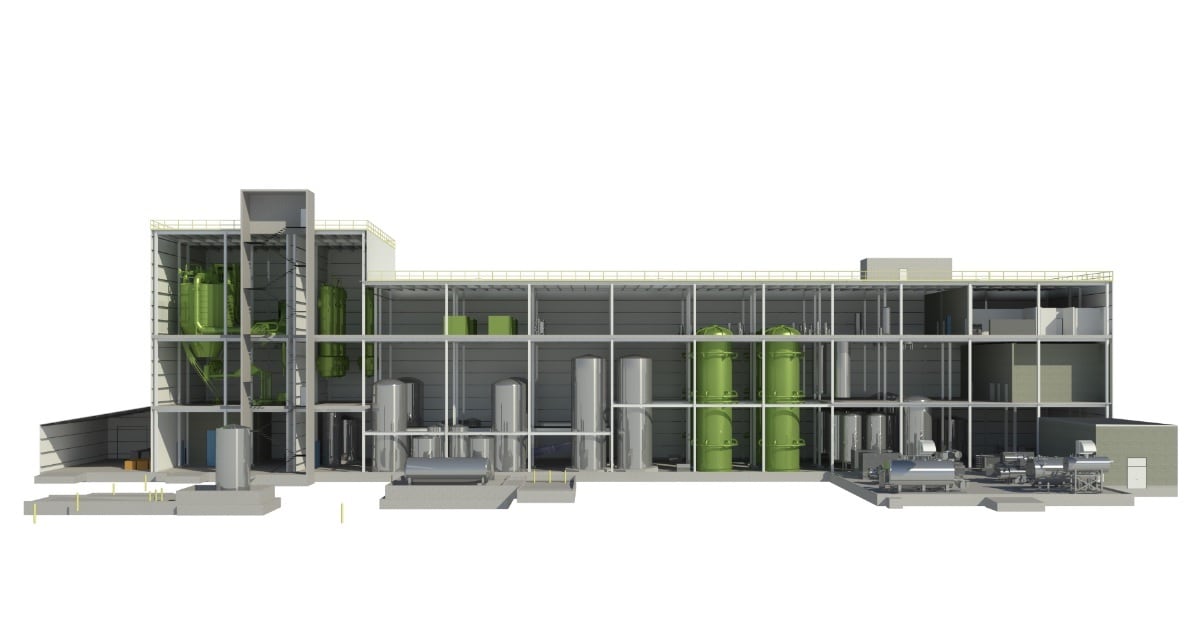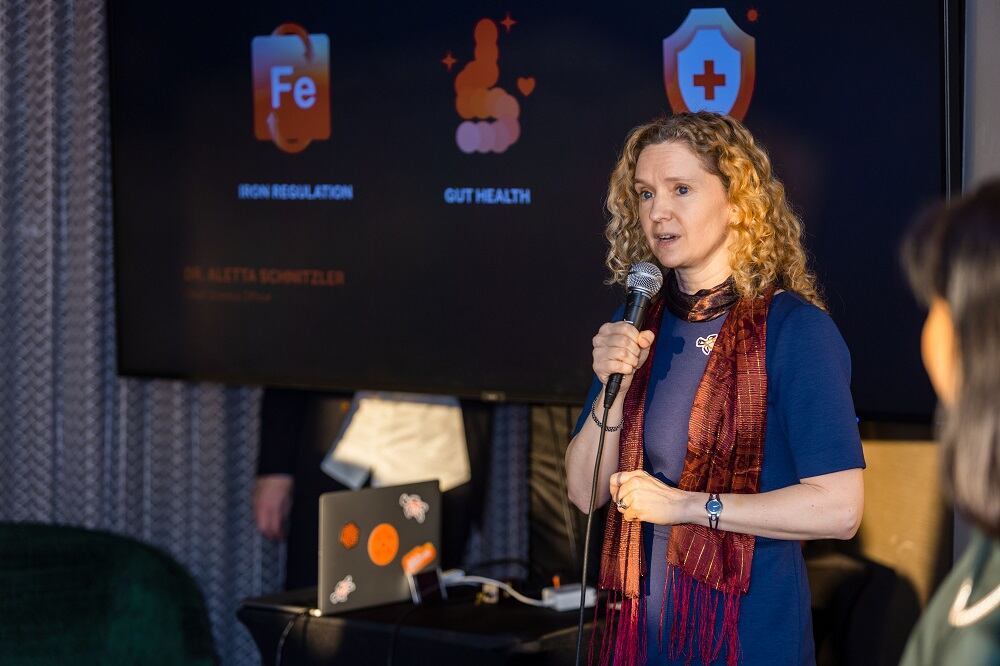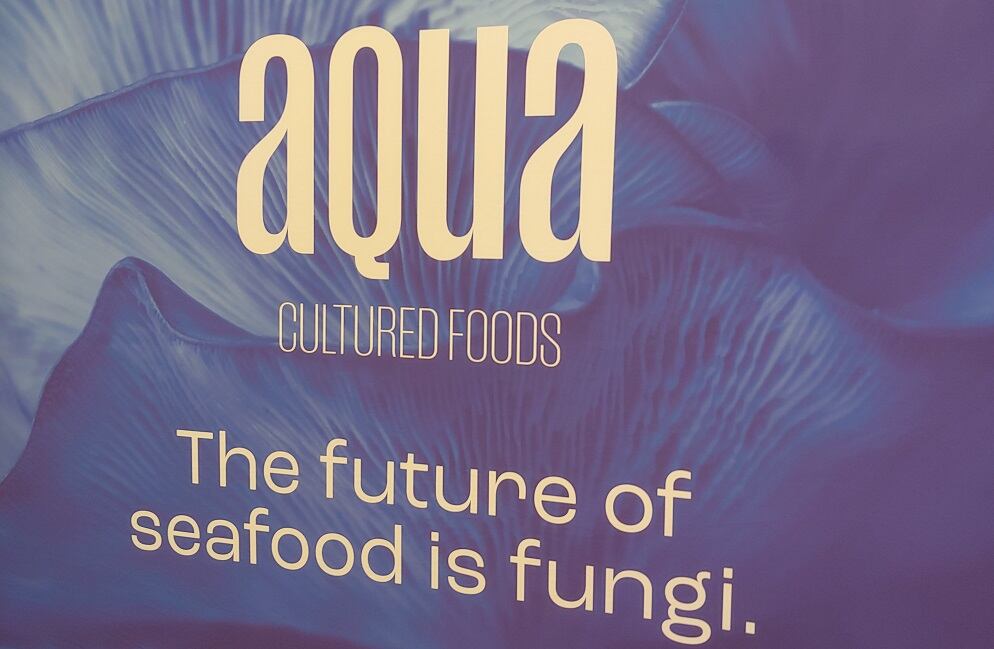The debt-based financing announced this week, combined with $20m in seed funding raised last year, will allow the startup to “move forward at speed” with breaking ground on a facility in Richmond, Ind., that will bring online 600,000 liters of capacity by the end of 2024, Liberation Labs co-founder and CEO Mark Warner told FoodNavigator-USA.
He explained that the company has ordered all major engineered equipment, including its 150,00 liter fermenters and DSP separation and drying units, and has begun the detailed design engineering phase of the project.
Once up and running, the facility will be at the disposal of companies that develop and produce new proteins, but which don’t have their own facilities or access to precision fermentation manufacturing at the scale necessary to bring down costs and meet projected demand.
Precision fermentation microbes are ‘all dressed up, but with nowhere to go’
Warner explained that while over the past few years, millions of dollars have flowed into startups using precision fermentation to program microbes, like yeast, to recreate a range of ingredients that are either extremely rare in nature or require animals to produce, most companies are unable to scales beyond bench amounts or at a price point that is viable.
“Most of the companies in both novel proteins and cellular meat keep running into the same issue, which is there is just no capacity out there … meaning that all these companies are putting billions of dollars into biology with no place to manufacture the products,” he said, joking that “all these microbes are now all dressed up but with no where to go.”
“The facilities that are out there are pretty old – 40 or 50 years old – and they weren’t designed to make food proteins. Most of them were designed 50 years ago to make pharmaceuticals and they’ve kind of been retasked, but they’re not as efficient as they could be,” he added.
This pain point was the original inspiration for Liberation Labs, which came out of stealth mode about a year ago with support from high-profile and well-respected backers, including Agronomics and CPT Capital, which also were heavily invested in the startups the need the capacity Liberation Labs plans to offer.
“Investors in this space kept hearing that companies needed capacity, but they didn’t want each company tyring to build their own capacity, one for capital reasons, and two because most of these companies didn’t have experience doing it,” said Warner, who does have experience building facilities like those that Liberation Labs is targeting.
Despite desperately needing capacity, none of the major players using precision fermentation have committed to use Liberation Labs’ $115m Indiana facility, yet, but Warner doesn’t sound worried.
He explained that over the last year, Liberation Labs has had “formal conversations” with many of the companies that need and are ready to use a facility at the capacity of the Indiana site, which will be set up to serve either one client or could be split in two halves.
“Once we placed $25m of orders for equipment, many are more confident that we are moving forward,” Warner said, adding he expects to have a committed contractual offtake in the second half of this year, which will be a year in advance of the facility operation.
While the most recent funding could bolster the confidence of those that need the capacity, it still isn’t enough to cover the full construction costs.
Funding available ‘for the right business case’
Warner said the $30m covers about 25% to 30% of the project’s costs, but he is confident that Liberation Labs will find either additional debt options or, if needed equity financing.
His confidence runs contrary to the feelings of most food and beverage players trying to raise money in the current environment, but Warner said fundraising right now is “better than people think.”
He explained that historically high amounts have flowed into the space in the past two years, and that investors who once dismissed infrastructure-type plays are now drawn to the security of fixed assets.
“So, we think for the right business case, we’ve found the markets okay,” he said.
The first of six facilities
While Liberation Labs has yet to break ground on its Richmond, Ind., facility, Warner is already scouting locations for the firm’s second lab location, which he says he hopes to select by the end of this year.
“We are looking at the Middle East and Australia to select a second location by the end of the year, and then plan to build additional facilities in southeast Asia, Europe and Brazil or South America … in the second half of the decade” for a total of six planned facilities, Warner said.
He explained that Liberation Labs decided to start in the US – and Indiana in particular – because that is where demand for its services and resources for production are highest.
“Building in the US is a big deal because most of the capacity right now is not in the US, but the main market where you can sell these products is in the US. So, you talk to most of these novel protein companies and most of them are based in the US scientifically, but they have to go to Europe or Mexico or Asia to manufacture the products that they can’t sell there, and have to ship all the way back to the US,” Warner explained.
As for why Indiana, Warner said it offers the three things a biomanufacturing facility needs – sugar, power and people. He explained that the while the sugar and power necessary to feed and grow the microbes that produce the proteins are commodities, an experienced workforce is harder to come by but is available from the three large metropolitan areas around the facility site.




